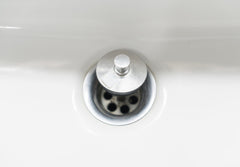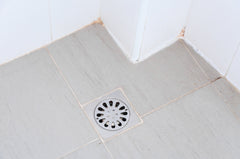Types of Water Filtration Systems: Which One Is Right For You?
Did you know that nearly 50% of households in the U.S. rely on water filtration systems to ensure their drinking water is safe and clean? For Canadians, having access to pure, clean water is just as important.
But with a wide variety of water filtration systems available, how do you know which one is the best fit for your needs? Choosing the right water purification solution is key to improving taste, reducing contaminants, and protecting your family's health.
Water filtration systems come in different types, each designed to address specific water quality concerns.
In this guide, we'll explore the various options available and their pros and cons and help you decide which water filter solution or purification method will work best for you.
What Is a Water Filtration System?
Water filtration systems are built to remove contaminants from water. They ensure that the water you consume is clean, safe, and free of harmful elements. These systems typically utilize a combination of physical, chemical, and biological processes to purify water.
Filtration is different from purification, as it mainly focuses on removing particles, sediments, and other impurities. Purification, on the other hand, aims to eliminate pathogens like bacteria and viruses that could pose health risks.
Why You Need a Water Filtration System
Having a reliable filtration system is essential because water sources often contain contaminants that can affect your health.
Common water pollutants include chlorine, lead, sediment, bacteria, and pesticides, which may not always be visible or detectable by taste.
These contaminants may cause a number of health issues, from digestive issues to long-term diseases.
With proper filtration, you can enjoy:
-
Better taste and odor
-
Reduced health risks
-
Improved skin and hair quality
-
Protection for appliances and pipes
What Are Some Types of Water Filtration Systems?
Learning about the benefits of water filtration systems naturally sparks curiosity about the different options available. Let's break down the types of systems you might consider for your home.
A Quick Comparison
|
Water Filtration System |
Pros |
Cons |
Best For |
|
Whole House Water Filtration |
Provides clean water for every tap in the home Whole-home protection from contaminants |
Higher initial cost Requires regular maintenance |
Large homes, households with multiple taps |
|
Under-Sink Filtration |
Affordable and space-saving Easy to install |
Requires space under the sink Limited filtration for other water sources |
Smaller homes, drinking and cooking water |
|
Countertop Water Filters |
No installation required Portable and easy to use |
Takes up counter space Limited capacity for larger households |
Renters, portable filtration solution |
|
Reverse Osmosis (RO) Systems |
Removes a wide range of contaminants High purification quality |
Wastes water during filtration Slow filtration rate |
Those needing high-level purification |
|
Faucet-Mounted Filters |
Easy to install and remove Cost-effective |
Limited filtration capacity Needs frequent cartridge changes |
Budget-conscious individuals, single-tap use |
|
Pitcher Water Filters |
Low-cost and portable Easy to use and maintain |
Needs frequent refills Limited filtration capacity |
Individuals needing small amounts of water |
1. Whole House Water Filtration Systems
Whole house water filtration systems provide clean water at every tap in your home. They ensure that all water used for drinking, cooking, and bathing is purified. These systems are installed at the point where water enters your home and filters it before it reaches any faucets.
Pros:
-
Clean water throughout the entire home
-
Ideal for households with multiple bathrooms and appliances
-
Long-term investment in water quality and health
Cons:
-
Higher initial cost
-
Requires regular maintenance
2. Under-Sink Filtration Systems
Under-sink systems are compact filtration units installed under your kitchen sink. They filter water directly at the point of use and provide purified water for drinking and cooking.
Pros:
-
Affordable and space-saving
-
Easy to install
-
Filters only the water you use for drinking or cooking
Cons:
-
Requires space under the sink
-
Limited filtration for other water sources
3. Countertop Water Filters
These filtration units sit directly on your countertop and are typically connected to your faucet. They are portable and easy to set up. This feature makes them a convenient option for renters or people who move frequently.
Pros:
-
No installation required
-
Portable and easy to use
Cons:
-
Takes up valuable counter space
-
Limited capacity for larger households
4. Reverse Osmosis (RO) Systems
Reverse osmosis is one of the most effective filtration methods. It removes a number of contaminants, including heavy metals, chlorine, and bacteria. These systems use a semi-permeable membrane to remove contaminants and provide high-purity water.
Pros:
-
Highly effective at purifying water
-
Removes most harmful contaminants
Cons:
-
Wastes water during the filtration process
-
Slow filtration rate
5. Faucet-Mounted Filters
Faucet-mounted filters are simple devices that screw directly onto your faucet and provide filtered water at the point of use.
Pros:
-
Easy to install and remove
-
Cost-effective solution for single-tap filtration
Cons:
-
Limited filtration capacity
-
Needs frequent cartridge changes
6. Pitcher Water Filters
Pitcher filters are one of the most convenient and affordable options. Simply fill the pitcher with water, and the filter will remove common contaminants as the water passes through.
Pros:
-
Low-cost and portable
-
Easy to use and maintain
Cons:
-
Needs frequent refills
-
Limited filtration capacity
How to Test Your Tap Water Before Choosing a Filter
Before investing in a water filtration system, it’s important to understand exactly what’s in your water. Testing helps identify the specific contaminants present, allowing you to choose the system that best meets your needs.
Here are a few simple ways to test your water:
-
Check Your Municipal Water Report
If you're connected to a municipal water supply, you can request a water quality report from your local utility provider. This report will include details about common contaminants like chlorine, lead, and fluoride. -
Use a Home Water Test Kit
Available online or at hardware stores, these kits can help detect basic issues such as pH imbalance, chlorine levels, and hardness. They're easy to use and provide results within minutes. -
Hire a Certified Lab for In-Depth Testing
For more comprehensive results—especially if you use well water or suspect serious contamination—you can send a water sample to a certified lab. They test for a wider range of substances including heavy metals, bacteria, and volatile organic compounds (VOCs).
Understanding your water profile helps you match the right filtration technology to your household’s specific needs, ensuring better performance and long-term satisfaction.
Key Factors to Consider When Choosing a Water Filtration System
Selecting the right water filtration system for your house is a crucial system. There are several factors to consider before you choose one:
-
Water Quality and Contaminants
Understanding the presence of specific contaminants in your water supply is crucial. You can test your water to identify contaminants and choose a system that addresses those concerns.
-
Household Size and Water Usage
Larger households with higher water usage may require a more robust system like a whole house filter or reverse osmosis system.
-
Installation and Maintenance
Consider whether you prefer a DIY installation or need professional help. Some systems require regular maintenance, so assess how much time and effort you're willing to invest.
-
Budget and Cost
Water filtration systems vary widely in terms of cost. So, it's important to consider both the upfront and ongoing maintenance costs when making your decision.
WaterMart: Your Trusted Water Purification Partner
WaterMart is a leading provider of water filtration solutions in Canada. Whether you need a water softener system, reverse osmosis unit or whole house filtration, WaterMart offers a wide range of products designed to meet the needs of every household.
Visit WaterMart to learn more about their comprehensive water purification systems and get started on improving your water quality today.
Final Words
The right water filtration system depends on your home's water needs, the contaminants present, and your budget. There is an option available for those looking for a simple under-sink filter or a whole-house system.
Regular maintenance is essential to ensure optimal performance, so be sure to choose a system that fits your lifestyle and keeps your water clean year-round.
FAQs
Frequently Asked Questions (FAQ)
Do I need to filter municipal tap water?
Municipal water is treated to meet safety standards, but it may still contain chlorine, sediment, or trace metals. A filtration system improves taste, removes residual contaminants, and adds an extra layer of protection.
Can I install a water filtration system myself?
Some systems, like pitcher filters and faucet-mounted units, are easy to install without tools. However, under-sink and whole-house systems often require professional installation to ensure proper setup and long-term reliability.
How often should I change the filters?
It depends on the system and your water quality. Most pitcher filters need replacing every 2–3 months, while whole-house systems may last 6–12 months or more. Always follow the manufacturer’s guidelines for best results.
Will a water filter remove fluoride?
Not all filters remove fluoride. If this is a concern, look for systems that include reverse osmosis or activated alumina, both of which are effective against fluoride.
Can one system handle all my water needs?
Some advanced systems combine multiple filtration methods to cover a wide range of contaminants. However, in many cases, combining a whole-house system with a separate under-sink or RO unit offers the most comprehensive protection.




0 comments